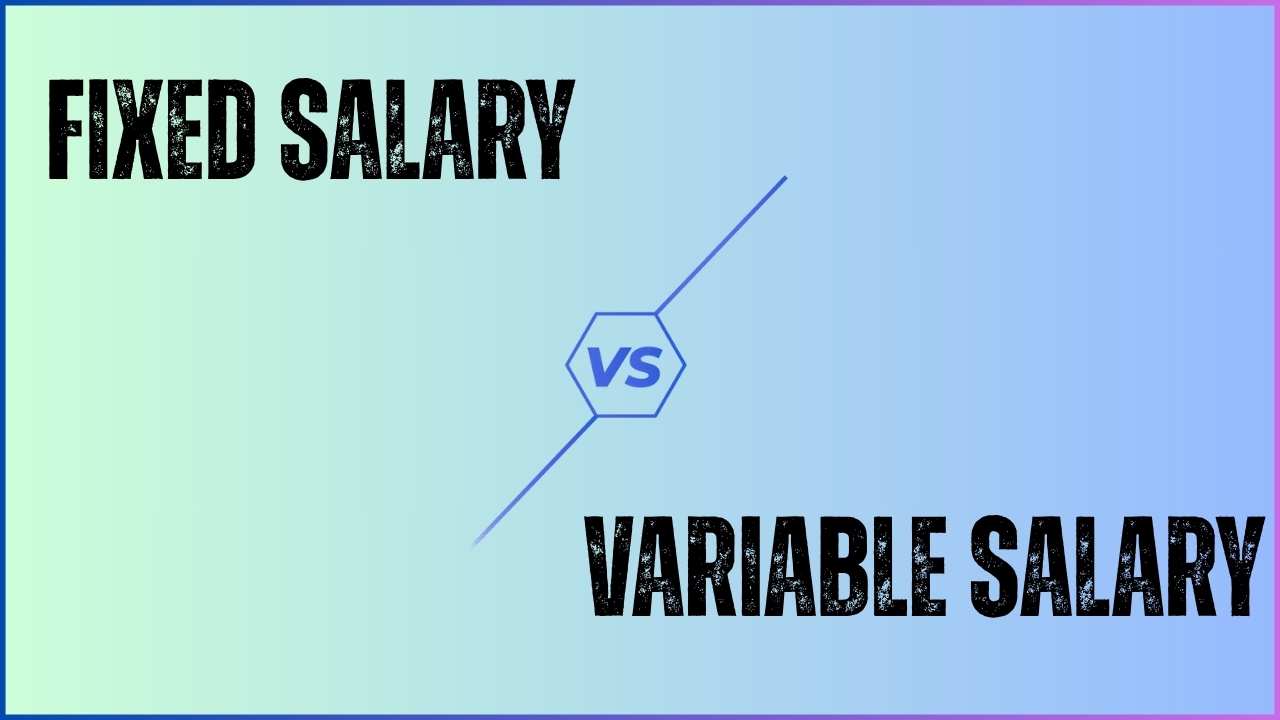Upon evaluating a job offer or charting your career advancement, knowing your salary type is important. Perhaps the most basic differentiation in a pay package is that between fixed salary and variable salary. Although both contribute to your overall income, they work differently and affect your financial planning, work satisfaction, and performance targets.
In this blog post, we explain the difference between fixed and variable salary, their pros and cons, and how they work in a Cost-To-Company (CTC) model.
What Is Fixed Salary?
Fixed salary, or fixed pay, refers to the part of your pay that is assured and regularly paid—typically on a monthly basis—irrespective of your performance or productivity.
Key Components of Fixed Salary:
- Basic Salary
- House Rent Allowance (HRA)
- Dearness Allowance (DA)
- Conveyance Allowance
- Other Fixed Allowances
This amount is clearly mentioned in your offer letter and forms the core of your monthly income.
Advantages of Fixed Salary:
- Provides a stable monthly income for better financial planning.
- Offers a sense of job security and stability.
- May allow overtime earnings in addition to the fixed pay.
Disadvantages of Fixed Salary:
- Can be demotivating in the absence of performance-based incentives.
- Unaffected by inflation unless revised periodically.
- May not adequately reward top performers, leading to dissatisfaction.
What Is Variable Salary?
Variable salary is the performance-based component of your pay. It is received in terms of bonuses, incentives, or stock options (ESOPs) and depends on your performance, company results, or set targets.
Key Components of Variable Salary:
- Performance Bonuses
- Incentives
- Sales Commission
- Employee Stock Option Plans (ESOPs)
This component varies from employee to employee and month to month, depending on how well targets are met.
Advantages of Variable Salary:
- Motivates employees to perform better and exceed goals.
- Helps organizations reward high performers.
- Encourages a performance-driven work culture.
Disadvantages of Variable Salary:
- May create unhealthy competition among employees.
- Can lead to unethical practices if poorly monitored.
- Lacks income predictability and may cause financial stress.
Fixed Salary vs Variable Salary: Key Differences
| Factor | Fixed Salary | Variable Salary |
|---|---|---|
| Definition | Guaranteed compensation paid regardless of performance | Compensation based on performance or achievement |
| Dependence on Productivity | Unaffected by productivity | Directly linked to performance or productivity |
| Components | Basic pay, HRA, DA, conveyance, fixed allowances | Bonuses, incentives, commissions, ESOPs |
| Security | Offers stable income and financial security | Not guaranteed; varies based on outcomes |
| Motivation Factor | Lower (not linked to performance) | Higher (encourages better performance) |
| Flexibility | Less flexible; fixed structure | Highly flexible; can change with goals, roles, or company performance |
Final Thoughts
Fixed pay ensures monthly financial stability, while variable pay rewards performance and achievements. A well-balanced salary structure should include both offering security and performance-based incentives.
As an employee, make sure to:
- Review your offer letter or payslip for clarity on both components.
- Understand the conditions attached to variable pay (e.g., performance targets, evaluation periods).
- Use tools like a salary calculator (like the one offered by Groww) to estimate your take-home pay and optimize your financial planning.
Disclaimer: The article is for general information purposes only. For precise salary-specific questions, please approach your HR department or financial advisor.











